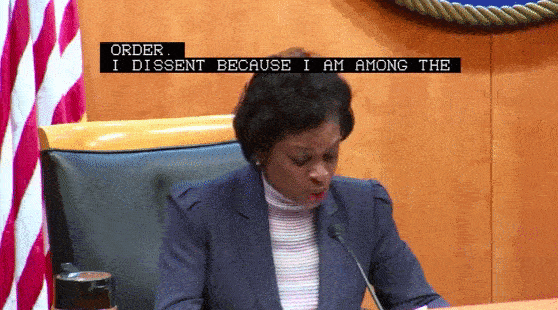Obtain neutrality is lifeless: What happens now?

There are three major gamers caught in fetch neutrality’s web: Tech companies, ISPs and consumers. The major two groups enjoy the an identical fair: develop money. The final neighborhood, consumers, has a rival fair: place money. And though tech companies and ISPs every dream of the an identical conclusion, they’re on reverse facets of the monetary meals chain here, with disparate views on fetch neutrality.

Raise Google as an illustration. Now that fetch neutrality guidelines had been dismantled, the fetch monolith faces the doubtless for paying higher charges to fetch admission to excessive-scurry (that scheme, the an identical speeds they’ve loved for the previous two years) lanes. Right here is one fair Google, Apple, Fb, Twitter and other major companies had been so loudly, fervently antagonistic to the destruction of fetch neutrality: They’re looking out to develop money, and paying higher charges doesn’t compute with this fair. In the intervening time, tiny ISPs hoping to enter the market would face these same elevated prices for sooner connections, doubtlessly stifling innovation on the onset.
ISPs, on the replacement hand, prefer the skill to charge these higher charges. No longer greatest does this day’s FCC’s ruling birth the path for ISPs to institute a couple of web scurry lanes, however it also permits them to purchase in beforehand banned practices admire throttling, blockading and paid prioritization. Throttling, as an illustration, would permit a firm admire Comcast to slack speeds down on obvious apps or web sites, thereby nudging other folks toward replacement products and companies. Comcast is the largest ISP in the US and it happens to hang NBCUniversal, which has a controlling stake in Hulu. If Comcast desires to present Hulu an edge over Netflix, it be now free to decelerate speeds appropriate for Netflix. Hell, it can well well even block the service entirely.
ISPs in the in the intervening time are required to document after they purchase in practices admire throttling or paid prioritization, and the FCC and FTC enjoy promised to review those stories as they roll in. On the opposite hand, there might be a loophole here: If ISPs can classify any of those moves as « cheap community management, » they don’t have to document them at all, leaving potentialities in the tiring of night as to why their Netflix presentations all at the moment witness admire shit. Main ISPs enjoy tried to legitimize throttling in the previous, and moreover they now enjoy a inexperienced gentle from the US authorities to attain so on a colossal scale, free from law.

Day after day web customers lose energy — that scheme, fetch admission to to recordsdata — with the repeal of fetch neutrality. At the present time’s resolution eliminates reporting requirements that were mandated below Title II of the Telecommunications Act. This implies ISPs no longer have to document « packet loss, geographically-specific disclosures and efficiency at peak utilization times, among other things, » because the FCC finds these requirements « burdensome. »
Web customers in the US enjoy already bought few alternatives by advance of ISPs, and now we are going to enjoy much less recordsdata about these companies and their practices.
What’s more, this day’s stream if truth be told legalizes zero-ranking plans, a frequent apply among mobile carriers that the FCC has been overlooking since Ajit Pai took over as chairman in January. Zero-ranking schemes exclude some apps or products and companies from month-to-month recordsdata caps, that scheme potentialities can fetch admission to them freed from charge although they’ve hit their idea’s restrict. Some carriers throttle service once a person hits their recordsdata cap, however any zero-rated apps will work as frequent.
Advocacy groups argue this apply violates the spirit of fetch neutrality, treating some recordsdata otherwise than others. Zero-ranking if truth be told permits carriers to charge potentialities more to fetch admission to competitors’ apps, a apply that might well well now carry over into the ISP world.

Nevertheless for consumers, the results of this day’s FCC vote transcend monetary issues. Right here is set equality, giving every person the an identical foundation from which to originate their companies, abilities their spare time activities and eat entertainment. Charging more for sooner speeds or obvious products and companies undercuts the root of a free and birth web. Right here is why advocacy groups admire the ACLU and EFF are so fervidly for Title II fetch neutrality guidelines. In an age of #influencers, YouTube stars and Instagram divas, all and sundry deserves the an identical shot at going viral. Or no longer it is the American dream for the digital age, and the FCC appropriate overwhelmed it.
On the opposite hand, this is never any longer the tip of the fetch neutrality debate. Advocacy groups and Unique York Attorney Overall Eric T. Schneiderman are field to sue the FCC over this day’s vote, and Congress if truth be told has the energy to reverse the ruling. Below the Congressional Evaluate Act, Congress has 60 working days to uncover about and overrule the FCC’s repeal by strategy of a straightforward majority vote; Democratic Sen. Ed Markey and Fetch. Mike Doyle enjoy already promised to elevate the sector. They’re indubitably no longer alone: Ahead of the vote, 39 Democratic senators despatched a letter to Pai urging him to desert his plans to repeal Title II protections. The digital American dream might well well very neatly be overwhelmed, however it is never lifeless.
Be taught More

Commentaires récents